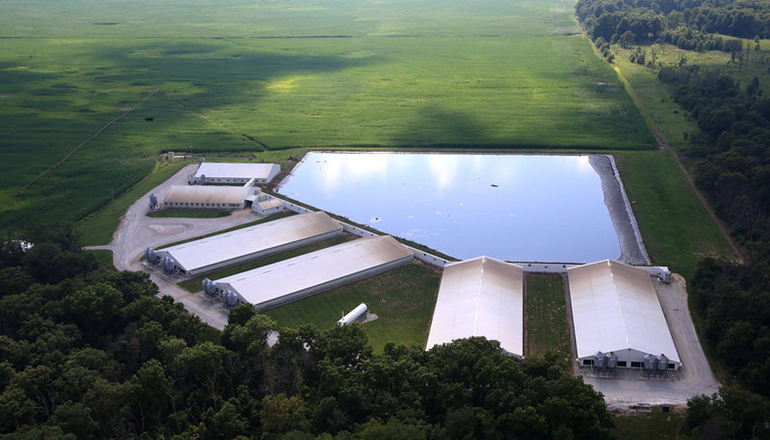Smithfield Food Inc. has announced a nationwide expansion of Smithfield Renewables, innovative projects that are designed to help meet its goal to reduce the company’s greenhouse gas emissions 25 percent by 2025. That is set in concert with the Environmental Defense Fund. This month marks the one-year anniversary of Smithfield Renewables.
Smithfield is setting the goal to implement “manure-to-energy” projects in most of its North Carolina and Utah locations; and nearly all Smithfield’s hog finishing spaces in Missouri with the next 10 years. The timeline is described by Smithfield as aiding the company in achieving—and exceeding—its 25% reduction by 2025 commitment.
The project includes converting existing anaerobic treatment lagoons to covered digesters or constructing newly covered digesters to capture biogas that will be processed into renewable natural gas.
Smithfield says the announcement is the culmination of decades spent studying and perfecting the commercial viability of ‘manure-to-energy’ projects.
In Missouri, Smithfield and Roeslein Alternative Energy are embarking on a venture to launch the second phase of a project that currently converts manure collected from company-owned farms into renewable natural gas. It’s described as enough to power 15,400 homes per year.
By the end of this phase, Smithfield and Roeslein will have jointly installed biogas infrastructure across all company-owned finishing farms in Missouri. In ten years, nearly 100 percent of Smithfield’s company-owned hog finishing spaces in Missouri will have the capabilities to produce renewable natural gas.
In addition to using manure to create natural gas, this project will harvest prairie grass for methane generation. The harvested grasses supplement the biogas generation, particularly during the cold winter months. That’s part of a prairie restoration effort that Smithfield has supported in Northern Missouri for some time.
Earlier this year, Smithfield expanded its support for these efforts by becoming the first food company to participate in a Monarch Butterfly Exchange, a program that restores monarch butterfly habitats on private lands including Smithfield hog farms in Missouri.







